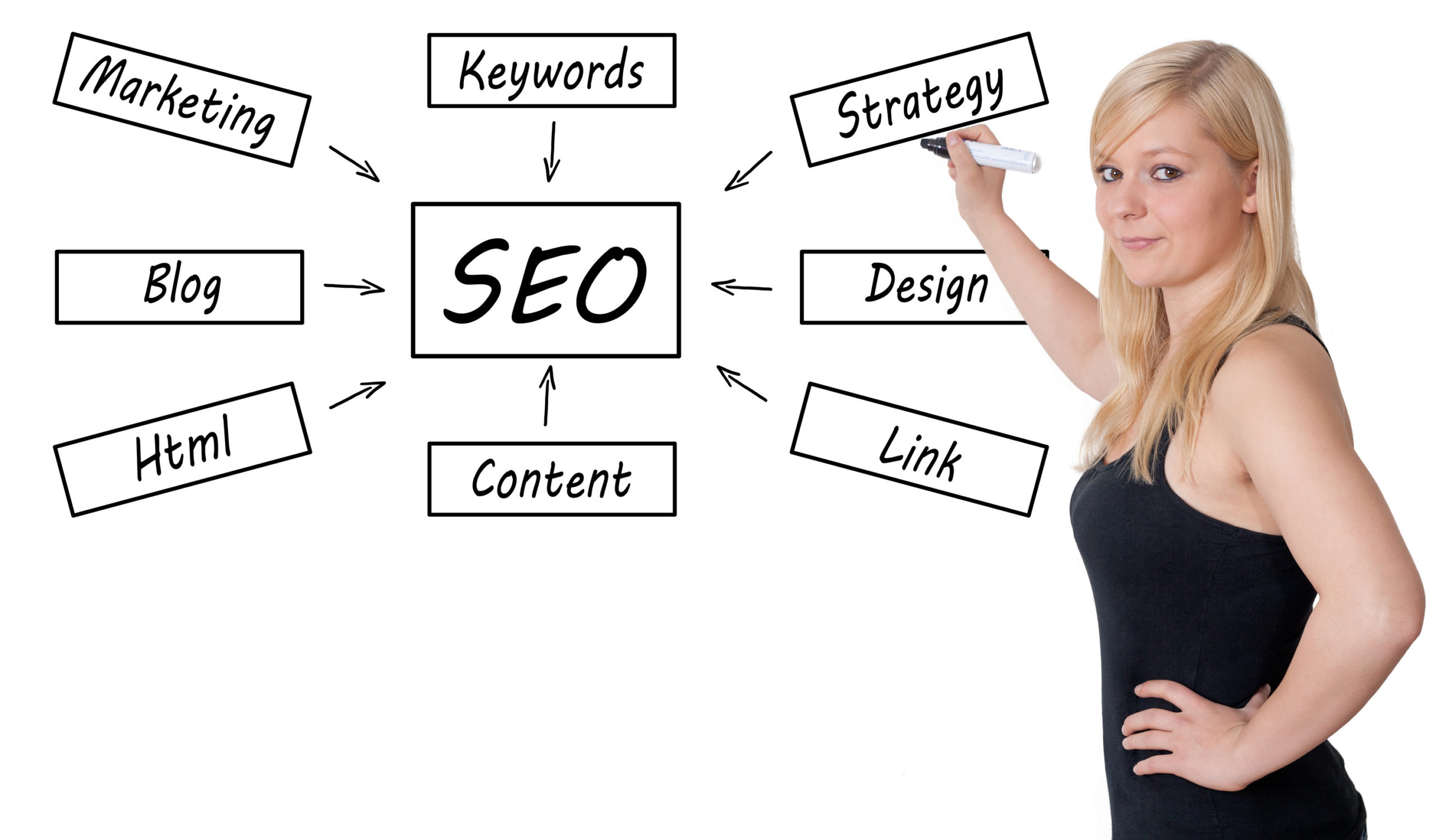Unless you are retiring from practising law, you probably want to attract more work, or at least better work.
96% of people seeking legal advice use a search engine, and one of the best ways to be found online is to have a professional website that is optimised for online search engines like Google, so your law firm can be found by potential clients at any time, and on any day.
Improving Search Engine Optimisation (SEO) means giving your law firm website the greatest chance possible of being found amongst the competition, thereby attracting more leads, more clients, and more work.
SEO – what’s it all about, and why is it important?
SEO can be described as the various steps taken to increase the quality and quantity of your website visitors via organic (non-paid) search engine results. Improving SEO increases the chances that your website will be found ahead of your competitors when people search online for the types of legal services you provide.
If your website is ranking on the first page, the first five organic results account for 67.60% of all the clicks, of which 31.7% of traffic goes to the #1 result. What this means is that ranking on the top position has never been more crucial in driving more leads to your website and giving you that competitive advantage.
Because most people don’t look past the first page of a Google search, SEO forms a critical part of your law firm marketing efforts. The more likely Google thinks your content answers the terms used in an online search, the more likely your law firm will appear at the top of the list.
Just because you have a website does not mean it will automatically rank. Here’s how SEO works and the science behind ranking on the top positions of Google.
How do search engines work?
To improve SEO, it is important to understand how people search for information online and how search engines evaluate and categorise content. A search engine is a software system used to find information on the internet which is systematically catalogued and stored in an index. They work by ‘crawling and indexing’ content and ranking it in accordance with how relevant it is to a searcher’s query.
Once content has been discovered and indexed, it stands a chance of being offered in response to a relevant inquiry. Sophisticated algorithms are used to retrieve results from the index when somebody searches online for certain information.
The most popular search engine today is Google, holding 90.1% of the total search engine market share. When a search query is entered, Google instantaneously assesses the query and matches it with what it believes to be the most relevant and authoritative content from its index and displays those results as links to websites and other pages.
How to rank #1 or improve your SEO.
The more you can do to help your content and website be found and indexed by a search engine, the better your SEO. With improved SEO, you attract more visitors to your website and potentially more work.
There is no one-off formula for improving SEO, rather a series of steps and tweaks to optimise your content and website for online searching. With a basic understanding of how search engines work, you can implement an SEO strategy appropriate for your law firm.
Tell Google where to find you.
As the internet’s number one search engine, it pays to know how Google works and what it offers.
You’ve got to be in it to win it, so start by telling Google you exist and understand how you can use Google to boost your law firm website.
Google my Business enables eligible businesses to set up a listing account and profile, and Google Search Console allows you to submit a sitemap of your website and check to see if your content is being crawled and indexed by Google. Google Analytics collects data about your visitors and traffic, providing valuable information about where your visitors are coming from and how they are interacting with your website.
Optimise your website design and structure.
Good website structure and user experience are fundamental to SEO.
A good law firm website should be professional and appealing, easy to navigate, mobile friendly, and an interesting place to visit. Visitors should be able to find the information they need easily and when they do find it, they need to stay engaged. You can do this by arranging menus and topics in a meaningful and logical manner, and publishing regular content targeted to your audience.
The better your website structure and the more relevant the information, the more seamless it is for web crawlers to crawl and index your content, influencing how easily you are found when potential clients are looking for your services.
Publish regular, quality content.
Content is King. Websites with a consistent record of fresh, quality content will be appreciated by your visitors and are looked upon favourably by search engines. Publishing quality content encourages search engines to crawl your law firm website, resulting in more indexed pages with a broader keyword range and higher rankings. Useful content that is valuable to your visitors is an important ranking factor because your visitors are engaging with that content, by staying on your site longer or by sharing it.
Content includes web pages, articles and blog posts, infographics and images, videos, webinars and PDFs.
Regular well-written legal articles and blog posts also help to build trust with potential clients and demonstrates your expertise in a particular area of law. Content can be shared on platforms such as LinkedIn, Facebook, or Twitter, giving your law firm exposure to an even greater audience.
The more content you create that answers specific, relevant questions, the better the chances of ranking for long-tail keywords. These are longer, more specific keyword phrases that can be invaluable for driving potential clients to your website who are looking for an answer to a problem, for example, ‘What happens when somebody dies without a Will?’
Pay attention to page titles, meta descriptions, and links.
Page titles, meta descriptions and links are important components of your overall SEO strategy as they can help influence search engines and rankings.
Page titles are the clickable links displayed in search results and appear as a URL in the browser tab. They tell Google and visitors what the content on the page is about. Each page of your law firm website should have a brief, unique title that is accurate and relevant to search results.
A meta description is a summary of the content on a web page and appears below the page title in an online search result. Meta descriptions should explain what the content on a page is about and be designed to persuade a website viewer to click on the link. A meta description should be 150-160 characters and contain simple keywords that make sense and can be easily understood by visitors and search engines.
Internal links to other pages on your website are also important. Not only do internal links make navigation easier and help keep visitors on your website longer, but they provide a pathway to help crawlers discover other links on your site.
When one website authentically links to another it is usually considered a recommendation and looks good to search engines. These are known as back links and can help with website rankings, particularly when they come from relevant respected industry websites.
Meta tags are snippets of text that describe the content of a web page and appear in the page’s source code. Meta tags can be read by search engines and web crawlers and are used to understand information about the web page. If used properly meta tags can help rankings.
Think of your website metadata as ‘pay-by-the-word’ advertising. Make every word count so you stand out from other content offered in a search result. Use clear, accurate descriptions to assist search engines, and thoughtful, persuasive language. Tell your visitors what to expect when they click on a link to your website, and make sure you deliver on that promise.
Consider professional website hosting.
The need for speed is a definite consideration when it comes to improving SEO. 40% of visitors will wait no more than 2 seconds before exiting your site. Google includes speed as part of its overall score of the quality of a site. If visitors have to wait too long for pages to load on your website, it is likely they will leave and move on to another site – your competitors!
Security, reliability, service, and support are critical considerations when choosing a website host.
Website hosting and maintenance can be complex, so it is important to choose a professional hosting company that will ensure the latest technology and plugins are installed, and help you resolve issues as they arise, in person, and not through a chatbot or by scouring through FAQs.
Improved SEO means better business for your law firm.
An SEO strategy helps search engines like Google, help you.
SEO is complex and the elements used to determine what works are constantly evolving, and with over 200 factors used in Google’s algorithm to determine what is relevant, it is arguably impossible to nail them all. What you can do however is work on a few key areas and bundle them into your marketing strategy to improve your overall SEO, enticing more visitors to your website to get more work.
Law firm marketing is all we do, providing busy lawyers with effective content, marketing and communication strategies. We build, host, and manage secure law firm websites for optimum performance and conversion with the visitor and user in mind. If you want more leads or would like to discuss how we can help to improve your SEO, please contact Peter on 0407 018 109 or email [email protected].
About the author












